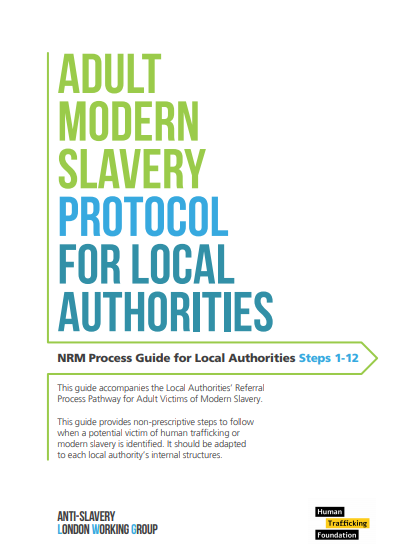Local Authorities’ Referral Pathway for Adult Victims of Modern Slavery
Together with the London Working Group, the Human Trafficking Foundation has produced the Referral pathway for adult victims to help Local Authorities improve their response to human trafficking and modern slavery, in particular the identification and support offered to adult...

